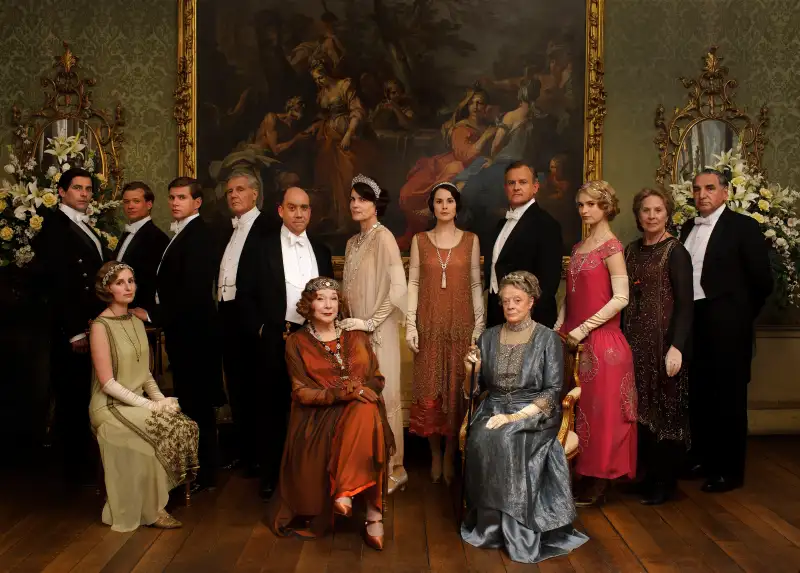Cheapskate of the Downton Abbey Scene: British Baroness's Frugal Living Guide

The July 2014 issue of the British society magazine Tatler has several interesting reads aimed at the upper crust. The articles carry such provocative titles as "Would You Take Your Son to a Prostitute? The Ins-and-Outs of Upper-Class Sex Education" and "How the Middle Classes Ruined Everything."
Another story also seems to have the aristocratic set in mind, yet it's getting quite a lot of attention from us schlubs who ruined everything. "How to Run a Stately Home on a Budget" is essentially a frugal living guide from Baroness Rawlings, the 75-year-old owner of a 13-bedroom, 38-acre country estate in Norfolk, currently on the market for around $10.5 million. The baroness's money-saving tips, which include reusing everything from napkins to bread crust to newspaper and never throwing anything away, have been featured in a host of British publications, including The Telegraph, Express, and Daily Mail.
Lady Rawlings is a strong proponent of growing one's own fruit, bargain hunting at auctions and on eBay, and leaving warm water in the tub after bathing (it will warm the room at no extra charge). She also takes issue with the common practice of throwing away "horrid little bars" of soap after they've been used by guests. "I give my guests a fresh bar," she said. "But I reuse it afterwards. And it ends up in drawers and cupboards to keep moths away."
While it may make news that someone so wealthy is simultaneously so frugal, Lady Rawlings is hardly the only person of means to be an unabashed tightwad. Fellow countrywoman the Queen Mother was supposedly too cheap to buy a TV for her Scottish castle, and she refused to replace raincoats that were nearly 30 years old. The frugal tendencies of Queen Elizabeth II and Prince Charles have also occasionally been on display, especially during the tough recession years, when buffets replaced banquets (the horror!).
Some of America's super rich are also renowned for their penny-pinching habits—most famously, Warren Buffett, who lives a unfancy life in Omaha, Neb., in the home he bought in 1958 for $31,500. This is the man who is CEO of the fourth-ranking company on the Fortune 500. Dick Yuengling, Jr., the owner of Yuengling, the oldest American-owned brewer, is another very wealthy character who refuses to give up his cheapskate ways; he's been known to drive a 2002 Taurus (bought used) and reuse Styrofoam cups.
The author Thomas J. Stanley has long chronicled the habits of the wealthy, and while the huddled masses may assume rich folks live wildly extravagant, spend-spend-spend lives, the truth is often just the opposite. In one of his surveys from a few years ago, Stanley found out that 75% of millionaires pay less than $20 for a bottle of wine, and 4 in 10 prefer wine that's $10 or under.
Other studies have found that affluent people tend to use coupons more than those in poverty, and that rich people don't buy on impulse and prefer quality over prestige in products, among other somewhat surprising habits.
But should these frugal, value-oriented habits really come as a surprise? A prudent, disciplined, savvy approach likely helped these well-off individuals gain their wealth. And without a prudent, disciplined, savvy approach to spending, even the richest folks out there could cease being rich. At some point.
